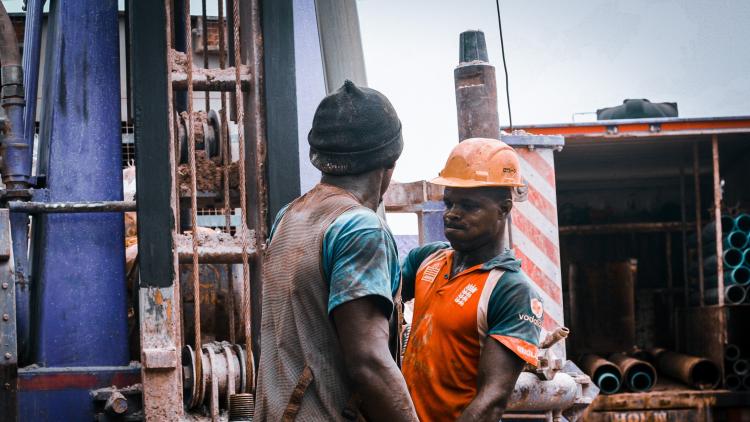Humanitarianism: Challenges & Critiques

Key information
- Start date
- End date
- Year of study
- Any
- Duration
- Full
- Module code
- 15PDSC010
- FHEQ Level
- 7
- Credits
- 30
- Department
- Department of Development Studies
Module overview
This module has three parts: it starts with the groundwork in humanitarian principles and architecture, and then presents the critiques and voices from the global South. These two parts are designed to build up an understanding of the historical context of humanitarianism, and of how humanitarianism has been challenged in practice and in theory. They will also explore how information is gathered on humanitaritarian contexts, the processes of needs assessment, evaluation and big data, and the difficulties associated with conducting these processes in areas in conflict, given the political and military agendas at play. The final part deals with practice and the contradictory contexts for humanitarian work, exploring the politics of security decisions, Responsibility to Protect, witness and asylum. This part presents the opportunity to examine and assess competing priorities in situations of multi-layered insecurity with reference to case studies.
This module draws on a range of literatures, including the academic work on humanitarianism, publications, data sets and relevant websites from NGOs, humanitarian thinktanks, datasets and UN bodies, including OCHA. It will also include a range of blogs, crowd-sourced data and journals from the Global South that allow for the inclusion of non-Northern voices. The module will challenge the conventional tropes of North to South assistance by examining how agents within the global South have responded to humanitarian disaster, and also how humanitarianism has been transformed with the establishment of operations in Europe to assist refugees and other destitute people migrating across the Mediterranean.
Objectives and learning outcomes of the module
On successful completion of this module a student will be able to:
- understand and analyse the history of humanitarian action, the key players, institutions and contexts;
- present core policy issues of humanitarian work internationally and nationally, and of proposals for their practical solution; combine theoretical knowledge with case study/empirical knowledge;
- understand data collection and constraints in emergency settings. Awareness of different data gathering techniques, including case studies, quantitative analysis, surveys, etc. Knowledge of main relevant data sources and outlets.
Workload
This module will consist of weekly two hour seminar.
Scope and syllabus
The module will deal with topics such as:
Part 1 - Hum principles and architecture
This part establishes the groundwork of the learning outcomes, with a focus on the history and policy work of humanitarian organisations. It introduces various approaches to data collection, including needs assessment, surveys and techniques of evaluation and monitoring.
- Principles and practice - inc IHL
- Needs assessment and early warning
- Evaluation, monitoring and knowledge creation
- Humanitarian architecture
Part 2 - critiques and voices from global South
This part further the work towards the learning outcomes by incorporating the practical and theoretical critiques of humanitarian work. It presents the constraints of working in emergency settings, and the forms of knowledge that challenge or reject conventional formulations of humanitarianism.
- Permanent/complex emergencies
- Voices from the global South
- Resilience and remittances
Part 3 - challenges of humanitarian action
This part completes the learning outcomes by equiping students with the analytial skills to understand and engage with the conflicting data and priorities involved when providing assistance. Students work towards a nuanced and critically informed understanding of the dynamics and contraints of humanitarian work.
- Security and remoteness
- Sovereignty vs R2P
- Witness vs access
- Relief vs asylum
Method of assessment
100% coursework. Each student will be expected to a newspaper articles worth 20%, one essay worth 50% and a podcast worth 30% of the overall grade. Resubmission of coursework regulations apply.
Suggested reading
- Becker, S.L. and Reusser, D.E. (2016) ‘Disasters as opportunities for social change: using the multi-level perspective to consider the barriers to disaster-related transitions’, International Journal of Disaster Risk Reduction 18: 75-88.
- Couldrey, M. and Herson, M. (eds) (2016) Local communities: first and last providers of protection. Oxford: Forced Migration Review.
- Csåky, C. (2008) No one to turn to: the under-reporting of child sexual exploitation and abuse by aid workers and peacekeepers. London: Save the Children UK.
- Duffield, M. (2010) ‘Risk management and the fortified aid compound: everyday life in post-interventionary society’, Journal of Intervention and State-building 4(4)
- Featherstone, A. (2013) Improving impact: do accountability mechanisms deliver results? London: Christian Aid, HAP and Save the Children.
- Fujii, L. A. (2008) ‘The power of local ties: popular participation in the Rwandan genocide’, Security Studies, 17(3): 568–597.
- Gillard, E.-C. and H. Slim (2013) ‘Ethical and Legal Perspectives on Cross-border Humanitarian Operations’, Humanitarian Exchange, 59.
- ICRC (2018) Professional standards for protection work carried out by humanitarian and human rights actors in armed conflict and other situations of violence, 3rd ed. Geneva: International Committee of the Red Cross.
- Obrecht, O. (2014) ‘De-internationalising’ humanitarian action: rethinking the ‘global-local’ relationship. October. Paris: Humanitarian Affairs Think Tank, IRIS.
- Platt, S., Brown, D. and Hughes, M. (2016) ‘Measuring resilience and recovery’, International Journal of Disaster Risk Reduction 19: 447-460.
Disclaimer
Important notice regarding changes to programmes and modules


